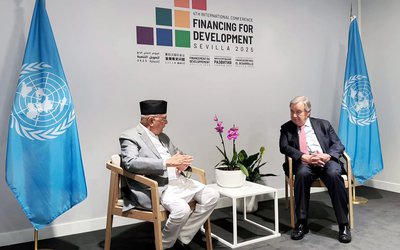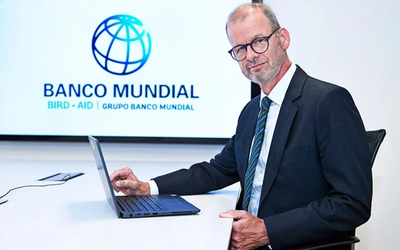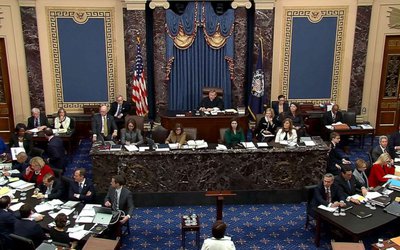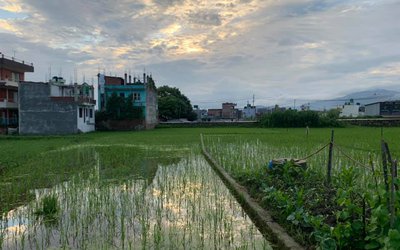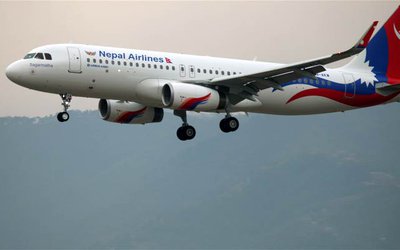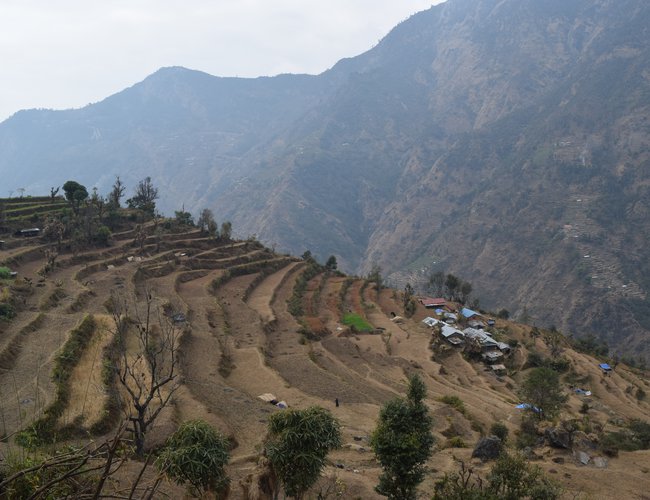
Sun Maya BK, 50, a ward member of Gauri Shankar Rural Municipality had never imagined that a day would come when she would get elected as a member of the Rural Municipality. After attending a six-month long Transformative Education Program (TEP), her entire vision changed and she took part in the election to establish the rights of the Dalits.
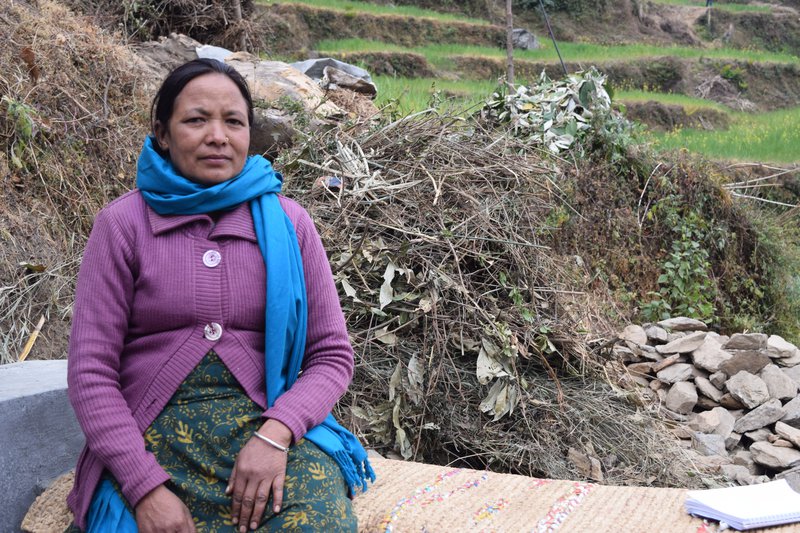
Representing Marbu, a remote village of the Rural Municipality, BK has been attending the board meeting and pushing the agenda of the Dalits and Dalit women since she was elected 22 months ago. “I am grateful to TEP for the change.”
Thirty-two-year-old Ganga BK became a legendary farmer of Chankhu Village of Garui Shankar Rural Municipality Ward 6 for her Akbare Khusarni (Habanero Chili). She is producing Akbare Khursani, also known as King of Chili, to sustain livelihood.
Four years after the earthquakes, the Dalit community, particularly Dalit women, have found new life in three wards, 5,6 and 7 of Suri, Chankhu and Marbu village of Gauri Shankar Rural Municipality of Dolkha district.
Implemented by the Lutheran World Federation (LWF-Nepal) with the funding support of the Evangelical Lutheran Churches In America (ELCA) in collaboration with the Dalit NGO Consortium, the Dalit women empowerment project has transformed backward, excluded Dalit households of Dolkha. As the project, which was implemented after the 2015 earthquake, is at the wrapping up phase, it has helped make Dalit women resilient, confident and self-reliant.
The Dolkha District is far from the capital, almost 150 kilometers northeast of Kathmandu, where Dalits from these three villages have suffered exclusion, poverty and suppression for centuries. As most of the men leave the village for employment, the women have been baring the entire burden of tending to the children, elderly and managing household chores. Dependent upon the subsistence-based agriculture, their livelihood options did not bring any economic transformation.
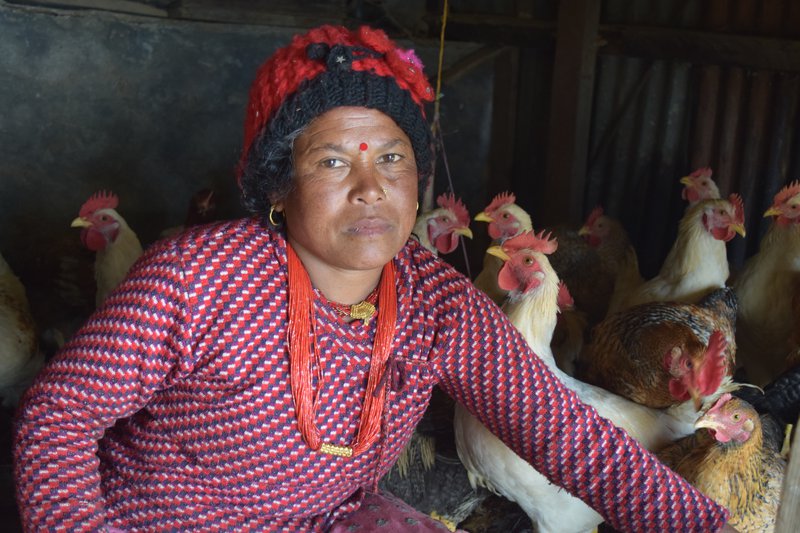
As the earthquake badly effected Dalit women with the destruction of their homes, livelihood options and limited infrastructure including drinking water taps, their state of living was miserable. Things have changed now following the implementation of aid relief, recovery, reconstructions, and livelihood and advocacy programs through the Dalit women empowerment project.
The experiences of three small villages have shown that focused and unified projects can bring transformation which could help formulate better strategies for future disaster recovery programs in Nepal.
The programs demonstrated that the marginalized and excluded groups need different recovery strategies than others after major disasters. Although the government provided a blanket grant of Rs.300,000.00 for housing reconstruction for victims, had LWF Nepal and ELCA not funded an additional Rs. 75,000.000 for reconstruction, many houses of the Dalit community would not have been completed even now. Constructed following the Building Back Better (BBB) scheme, the new houses and infrastructure like drinking water taps and public buildings will likely to resist disasters in future. Moreover, without livelihood support of both these organizations, many Dalit women would have continued to face exclusion and economic hardships.
The programs implemented under the Dalit women empowerment project supported poultry rearing, goat rearing and vegetable farming. These programs have been generating employment for women and putting cash in their hand. However, this is not going to be enough. There needs to be long term social recovery and capacity building programs and projects to bring Dalits out of the current cycle of poverty and discrimination.
In the last three years, the project offered start-up capital, ranging from Rs.17,500.00 to Rs.25,000.00, for small rural businesses like livestock and farming, coupled with necessary skills and guidance training in the first phase.
The project also ensured the creation of equal opportunities across the Dalit society. As well as that, the project has targeted the most vulnerable groups, such as families headed by single women, the disabled and elderly.
As the project is at the stage of conclusion, Dalit women have built secure, safer and more sustainable communities but they are still vulnerable to exclusion and domestic violence.
“Along with implementing the earthquake reconstruction, we have also launched the governance, inclusion, advocacy and livelihood programs. Thanks to the programs like TEP, many Dalit women are elected as ward members. We provided them training to build capacity to raise the issue of Dalit women and put pressure to increase the budget for the Dalits,” said Dr. Prabin Manandhar, Country Director of LWF-Nepal.
Different Approaches
Unlike other earthquake recovery and reconstruction projects implemented in various other districts, LWF-Nepal, ELCA and the Dalit NGO Consortium have implemented different approaches in the three villages. LWF-Nepal mobilized the Dalit NGO Consortium to make the program more effective and the members of the Dalit NGO Consortium got involved in their specialized areas with united missions directed for the economic progress of Dalits.
LWF-Nepal’s project modality in Dolkha was different than other districts. Instead of building homes, they encouraged victims to access the government’s grant and provide additional support to complete the housing construction.
The National Reconstruction Authority (NRA) provides a blanket grant of Rs.300,000 to all earthquake victims. As Dalits are in worse economic conditions than other people, they were unable to complete the rebuilding of their homes with just the government grant, so LWF-Nepal and ELCA came to aid them with an additional Rs.75,000.00 to completely finish off their housing.
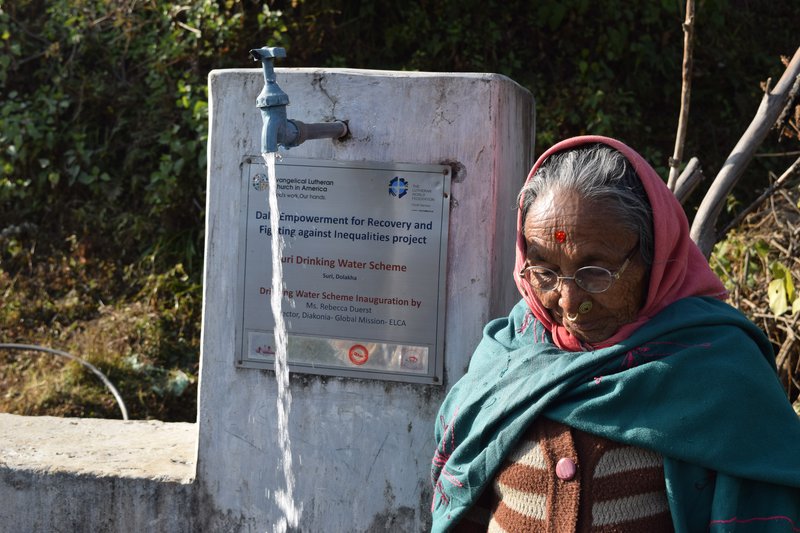
Side by side, with housing reconstruction, LWF Nepal and ELCA have also supported the WASH, TEP and livelihood programs.
Women Focused
As the focus of the project was to reduce the burden of women, the activities were also directed towards them. Under the program, a number of water taps were installed in different localities to reduce the time of women having to carry water. Likewise, livelihood support was given to women in areas like vegetable farming, construction of tunnels, livestock, poultry and tailoring.
“We have provided support to livelihood and infrastructure including water supply and irrigation. Other programs are related to governance, advocacy and inclusion. It focuses on local governance, especially women,” said Moti Nepali, Chairperson of the Dalit Welfare Association (DWA).
“We have constructed several water taps in three villages. After the completion of the taps, the time to fetch water has been reduced from 2 hours to 10 minutes. What we want is to provide water for all households. We are working in close coordination with the local level.”
Although the project’s contributions are just Rs.450,000.000 for drinking water in three villages, water users’ associations and local levels are contributing to the remaining budgets. This has helped establish a sense of ownership. Whilst LWF-Nepal and ELCA funded the project, the role and responsibility was given to the community. "Our technical advisors frequently visited the sites. The project encouraged the community. In WASH, the community and local level were involved with transparency and accountability in the entire process," said Ashiwini Poudel, LWF-Nepal Project Officer in Singati.
The support of the community was different in the three areas. In Suri, each household contributed Rs.4000.00. In Chankhu and Marbu each household made a contribution in labor by carrying stones and sand. However, there was still a strong sense of ownership in the three villages.
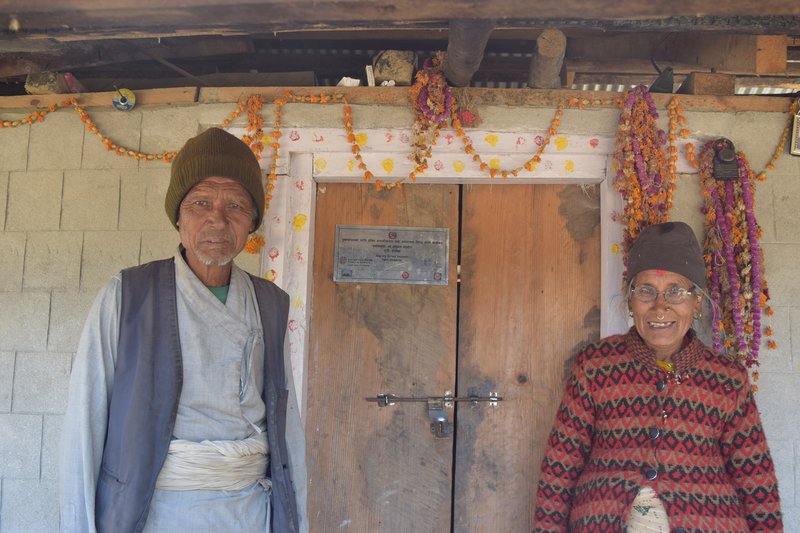
In Marbu, the project also supported source protection and maintenance and constructed 8 new water taps. As the remotest village out of the three, transport cost is very high in Marbu. People contributed by transporting all the materials on their own.
"In the first phase, there were nominal contributions of communities. Now communities have been showing interest to take ownership and also provide their own contribution, this is what the fundamental change is. The participation of the people is high and they are taking leadership. I found the community must be empowered. The quality and support is high that is one of the biggest things I have seen. There is realization that this is our project and it is for us," explains Nepali.
TEP For Change
Under TEP, all three villages received two classes each for six months, focusing in the theme of environment protection, justice, empowerment, domestic violence, exclusion, disasters, social welfare, business plans and literacy.
In the last four years, Dalit women have become economically independent and more aware about their rights. One of the significant achievements of the project is that all the elected representatives in the wards were the product of TEP.
By implementing TEP, the project empowered Dalit women giving them information about how the law and constitution protects them. The first phase program was entirely related to earthquake response. However, the second phase include governance, exclusion, livelihood and WASH.
“During the training period, we taught them how to raise the issue of Dalits and how to accommodate Dalit welfare and education schemes at the local level. We focus our program on governance and inclusion. The experiences have shown that education is an important sector to improve the livelihood of Dalits," said Gaura Nepali, Chairperson for the Center for Dalit Women.
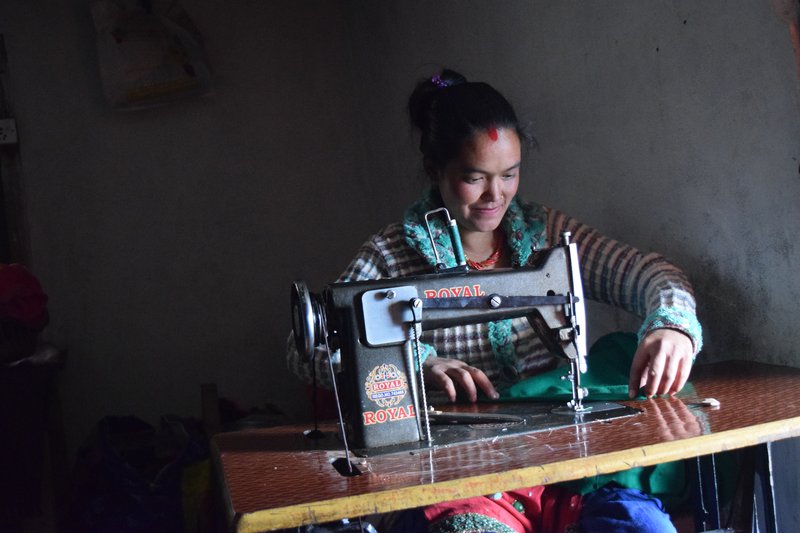
"In the first phase, we supported women who were unable to secure the second installment of funding for the earthquake reconstruction. We also supported single women and dalits with no land registration certificate and citizenships to secure the grant."
In the second phase, efforts are taken to raise the issue of caste-based discrimination and exclusion to try and bring the Dalits into the mainstream. The constitution and laws state to treat all individuals with equality but what has not changed is the mindset of the people. Although there are more elected Dalit women, they are not being invited to partake in meetings in the local body. They are elected but they are yet to secure their own rights. As Nepali put it, "Despite efforts to empower Dalits, Dalits are yet to be in a top administrative position. There is yet to have a Dalit Secretary, IJP and Army Chief.”
Beneficiaries
With women being the main beneficiaries of the programs, the income and decision-making rights of Dalit women has increased a lot. Women are empowered through the livelihood program.
In three wards, there are 900 population of Dalits and half of them are women whose financial conditions are still bleak. Through the CDN, out of 74 elected Dalit women representatives, 57 elected representatives were trained. The project also provided training to Dalit related organizations, as well as 18 human rights defenders from the district.
Under the entrepreneurship training program, the project trained 25 young women. Though this program they were taught how to maintain logbooks. Under the agriculture and market program, the project helped Dalit women to establish links with cooperatives, financial institutions and insurance offices. Connections were also established with Singate Market mobilization. As the project is in the final stage, the villages of Suri, Chankhu and Marbu have seen drastic changes in the overall state for Dalit women.
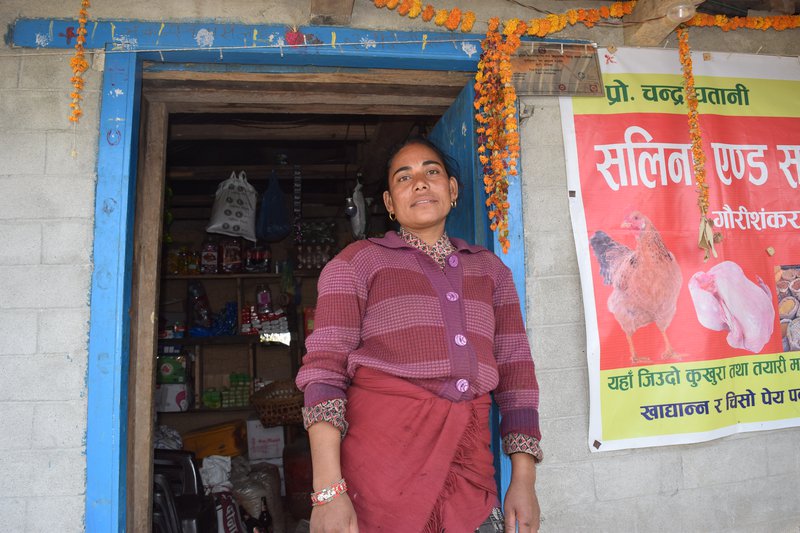
After the implementation of the program, one can see qualitative changes in the lives of the Dalits. One of the major successes of the program was its ability to integrate development and advocacy together.
“Dalits, who have been living in society full of so much of exclusion, have realized that there are certain organizations which speaks for them and to provide them with some resources,” said Moti Nepali. When the program launched the awareness level was very low. The situation is different now; there is realization that they have to do something for themselves.
"When we launched the project, the local Dalits expressed the feeling that there was someone who could speak for them. When I went to conduct the training, the women expressed their own difficulties openly. They trusted me so much, “said Gaura Nepali. “As a woman from the same community, I understood their difficulties. In all of the Rural Municipality of Dolkha, we have trained two human rights defenders. We constituted a network of human right defenders, local Dalit activists and human right activist.”
"Although they suffered greatly, many victims do not have landownership certificates or a citizenship certificate. We supported them to take both. Since the males of most of the households are working in foreign countries, women are denied facilities. We took the issue at DDC and CDO office. We have created a conducive environment. They were living in their own difficult circumstances. From a hopeless community, the situation has changed and victims are now living with hope," describes Moti Nepali.
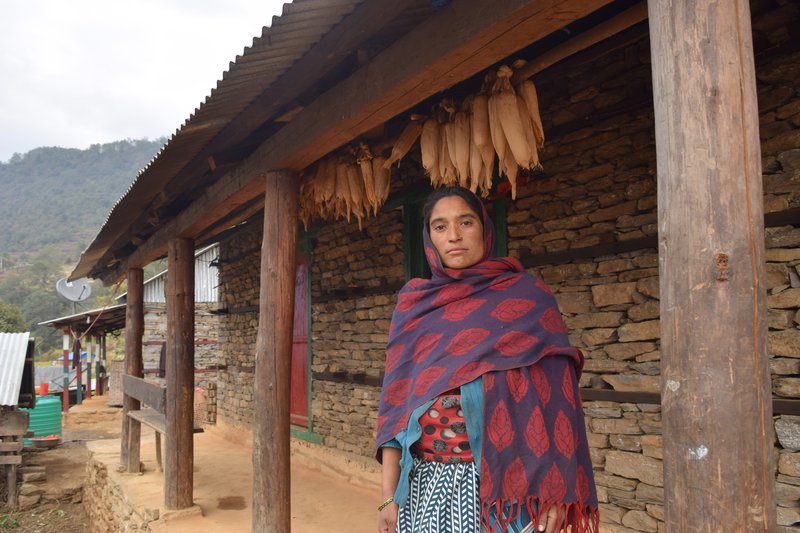
CDWN’smain focus is building the capacity of elected Dalit representatives through the following activities: raising awareness of new government policies and provisions, human rights training and cross-learning and exposure visits. In the first phase Rs.25000.00 will be provided.
What Next?
The marginalization and exclusion of Dalits cannot be solved just by launching short-term programs. There needs to be more awareness generated of plight of the Dalits and there needs to be more frequent classes conducted for all.
Although infrastructure was rebuilt and livelihood programs implemented, the social status of the Dalit community is yet to improve. “Building drinking water, toilets and other infrastructure alone are not enough to completely transform the Dalit community. What they require is the means to exercise their constitutional and legal rights and share the positions of power. There needs to be programs against oppression and discrimination launched. This issue must be addressed at local level, provincial level and national level. This should be go to international level in order to raise the issue,” states Dr. Prabin Manandhar, Country Director of LWF-Nepal. “We worked with the Dalit NGOs to use the Dalit Network to support Dalits.”
“Just giving one or two training courses is not enough. We need to address the challenges to move ahead. Today’s ward member is going to be the ward chair of tomorrow and maybe she will be Member of Parliament at the Center and province. We need to enhance her capability,” said Gaura Nepali.
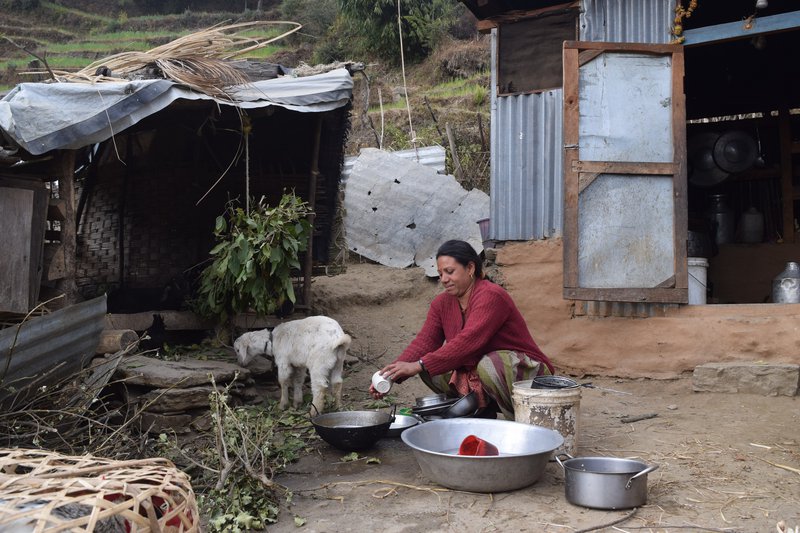
“What are the achievements and what are ways forward, this is very important,” said Gopal Dahal of LWF-Nepal.
Instead of giving a small amount of money, there need to be more resources with long-term commitment. Although the communities concerned and impacted population have developed considerable self-resilience, the support is still inadequate to ensure full recovery and reduce the poverty, social disruption and vulnerability to future potential hazards.
Finally, other members of society also need to be integrated into the Dalit’s program, only then can the problem of discrimination be effectively addressed.

Keshab Poudel
Poudel is the editor of New Spotlight Magazine.
- FOURTH PROFESSOR Y.N. KHANAL LECTURE: Nepal-China Relations
- Jun 23, 2025
- Colonel JP CROSS: Centenary Birthday
- Jun 23, 2025
- REEEP-GREEN: Empowering Communities with MEP
- Jun 16, 2025
- BEEN: Retrofitted For Green
- May 28, 2025
- GGGI has been promoting green growth in Nepal for a decade: Dr. Malle Fofana
- May 21, 2025

